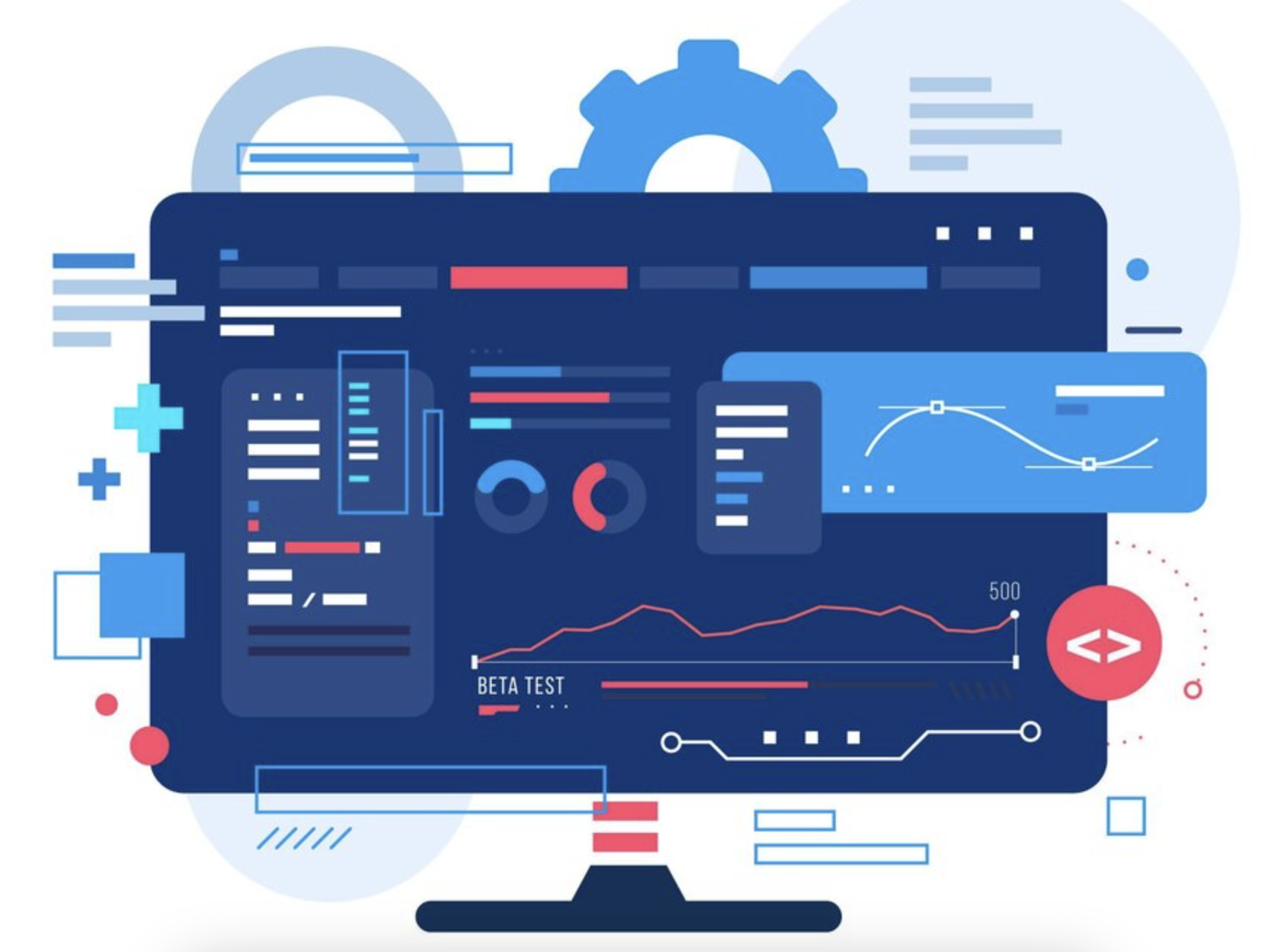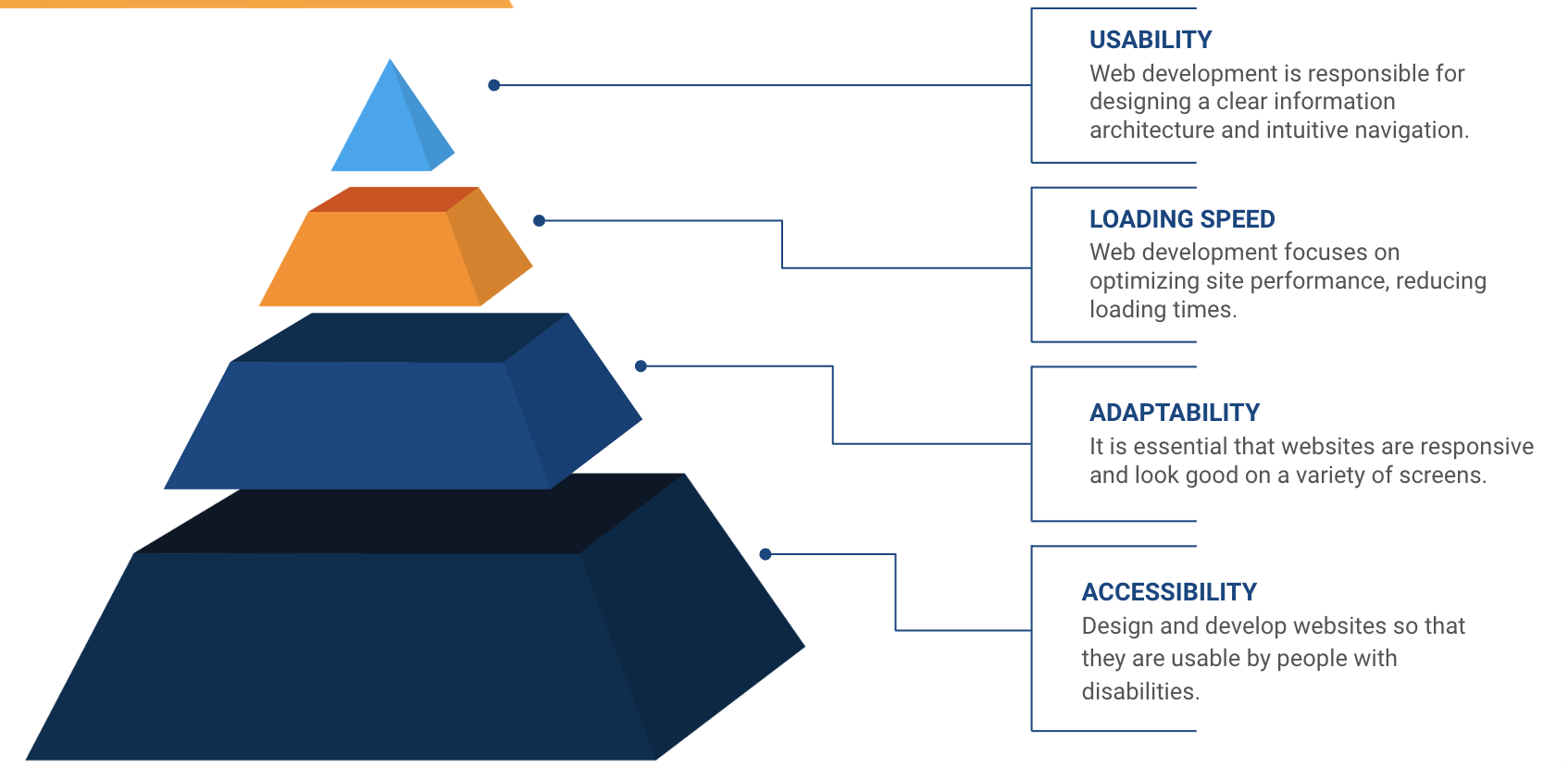The role of web development in your clients' user experience
March 14, 2024
Some of our customers
Our services
Let's talkTable of contents
Quick Access

The browsing pace of today's users on the Internet is frenetic: They do several things at the same time, they quickly switch between applications and tabs and, if by chance a platform gives them a bad experience, they simply leave. That is why offering a good user experience has been a constant concern of companies, since much of the success of any online business depends on it.
In this context, web development plays a fundamental role in creating an exceptional user experience. From accessibility to usability to visual design, every aspect of web development has a direct impact on how customers perceive and use a site.
That's why we created this article, to talk about how web development influences the user experience of clients and why it is essential to pay attention to these details.

Web development: Statistics on the importance of a good user experience
“User experience is important because it tries to satisfy the user's needs. Its goal is to provide positive experiences that keep the user loyal to the product or brand. Additionally, a meaningful user experience allows you to define customer journeys in your product that are most conducive to business success”, they noted in a specialized article published by UX Planet.
Statistics associated with user experience indicate that 39% of users will stop interacting with the website if it takes too long to load, according to the UXcam portal. Additionally, 88% of users will not return to websites where they had a bad experience.
Role of web development in creating a good user experience
Web development and user experience are closely related, as web development focuses on creating functional websites and applications, while UX focuses on how users interact and perceive those sites and applications.
Here we explain more about how web development affects the final experience that the user receives:
Usability and intuitive navigation
An essential part of the user experience is the ease with which visitors can navigate a website and find what they are looking for. Web development is responsible for designing a clear information architecture and intuitive navigation that guides users efficiently through the site's content.
This includes the layout of menus, the structure of pages, and the organization of interactive elements. A confusing navigation design can frustrate users and cause them to leave your site in search of easier-to-use alternatives.
“When users can find what they need quickly and easily, their satisfaction with the product increases, as does their likelihood of returning", they noted on the specialized portal UX Collective.

Loading speed and performance
In a world where attention is a precious resource, users expect websites to load quickly. Web development focuses on optimizing site performance, reducing loading times and improving response speed. This involves image optimization, file compression, and using caching techniques to minimize wait times.
A slow site can frustrate users and even negatively impact search engine rankings, making performance optimization a priority for any web project.

Adaptability and responsiveness
With the increase in mobile device usage, it is essential that websites are responsive and look good on a variety of screens and device sizes. Web development uses techniques such as responsive web design to ensure that sites automatically adjust to the user's screen size, providing a consistent and optimized experience on any device.
Lack of adaptability can alienate users accessing the site from their smartphones or tablets, resulting in a loss of traffic and conversions.
“Another benefit of having a great responsive website ready for all devices is its adaptability to any screen size. With a design like this, you are far ahead of your competition”, they explained in a Forbes article.
Accessibility and inclusive design
Web accessibility refers to the practice of designing and developing websites so that they are usable by people with disabilities. This includes making content accessible to screen readers, providing alternative navigation options, and ensuring that interactive elements are easily keyboard-operable. Web development plays a crucial role in implementing these practices, ensuring that the site is inclusive and accessible to all users, regardless of their abilities.

Visual design and aesthetic appeal
While functionality and usability are fundamental aspects of user experience, visual design also plays an important role in creating a positive impression. Web development works in collaboration with graphic designers to create attractive and aesthetically pleasing interfaces that reflect the brand identity and captivate users from the first moment.
This includes choosing colors, fonts, and visual elements that enhance the browsing experience and encourage interaction.
Web development is a vital component in creating an exceptional user experience for clients. From usability and intuitive navigation to optimizing performance and accessibility, every aspect of web development contributes to the way users perceive and use a website.
By paying attention to these details and prioritizing user experience at all stages of development, companies can improve customer satisfaction, increase retention, and foster long-term growth. Ultimately, investing in user-centric web development not only benefits clients, but also drives business success in today's competitive digital landscape.
We recommend you this video
Related Blogs
-1.17.37-p.m.png)
We look at how AWS tools help you optimize costs
-10.38.35-a.m.png)
The basics of cloud computing
-9.19.54-a.m.png)
How IT outsourcing services can unlock your project in the retail industry
-5.03.33-p.m.png)
How to explain your project requirements to external mobile app developers
-2.51.54-p.m.png)
Scenarios in which companies should develop custom software
-11.27.07-a.m.png)




_0.png)






